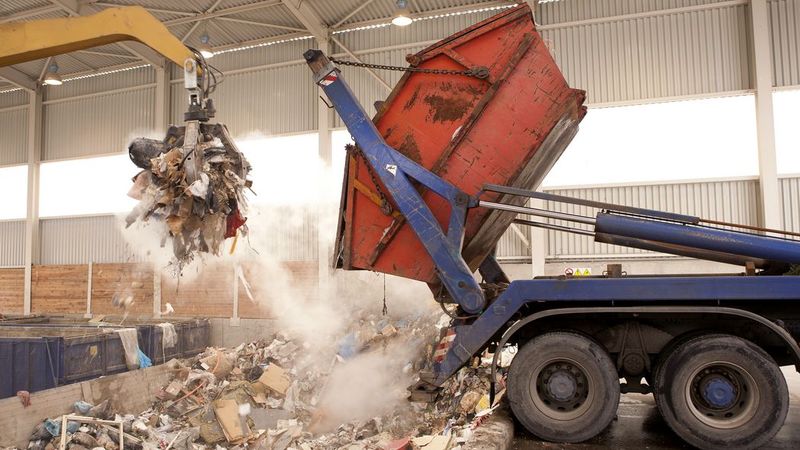Artificial Intelligence And Robotics For A Sustainable Circular Economy
What can Artificial Intelligence (AI) and robotics do to improve the recycling rate for large pieces of waste?

Without recycling processes, waste such as building rubble is processed further unsorted. Source: AdobeStock
What can Artificial Intelligence (AI) and robotics do to improve the recycling rate for large pieces of waste? This is the central question in the cooperation project “Smart Recycling” between the leading German Research Center for Artificial Intelligence (DFKI) and the Institute for Energy and Circular Economy (IEKrW) at the University of Bremen. The project partners want to develop appropriate concepts by mid-December. Both technical and economic challenges are taken into account.
Although the solutions are primarily intended for the circular economy, they should also be able to be used in other areas. Examples: disaster control, nature conservation through automated waste collection, sustainable agriculture, environmentally friendly mining, maintenance and care of infrastructures or Industry 4.0. In addition to the DFKI and the IEKrW, the Hamburg University of Applied Sciences and Nehlsen Stoffstrom GmbH & Co. KG are involved in the project, which will run until December 15, 2020. The “Smart Recycling” project is funded by the Federal Environment Ministry within the funding priority “AI beacons for the environment, climate, nature and resources”.
With its efficient Kl- and robotics-based solution, the "Smart Recycling" project supports, among other things, the goals set in the German Resource Efficiency Program to increase the recycling rate for municipal waste to over 65 percent, the recycling rate of plastic waste and the use of recycled building materials.
A significant ecological benefit is expected from the more efficient recycling of large pieces of waste, especially in the construction industry: Of the around 412 million tons of waste in Germany, 220 million tons are construction and demolition waste (data from 2017, Federal Statistical Office). The sorting of waste plays a decisive role in increasing resource efficiency. This is where the Smart Recycling project comes in: the use of modern sensor technology, CL methods and robotics is intended to improve the sorting of waste and thus increase resource efficiency. The project will determine the use of the techniques mentioned and suggest appropriate approaches to increase efficiency.
Background:
The circular economy is about using products and raw materials for as long as possible. If that is no longer possible, raw materials are broken down into their raw materials and recycled. Automated separation of these substances is particularly efficient and therefore environmentally friendly. However, this separation is currently only possible for small pieces of waste or waste that has already been shredded, so-called flakes. Waste that is in large pieces, such as building rubble or bulky waste, must first be shredded for automated sorting. This is usually done manually or with manually operated technology and is therefore slow and cost-intensive. The recycling rate is correspondingly low, so that many valuable raw materials are disposed of together with residual waste or, at best, are recycled with little value.
(Press release from the University of Bremen)
